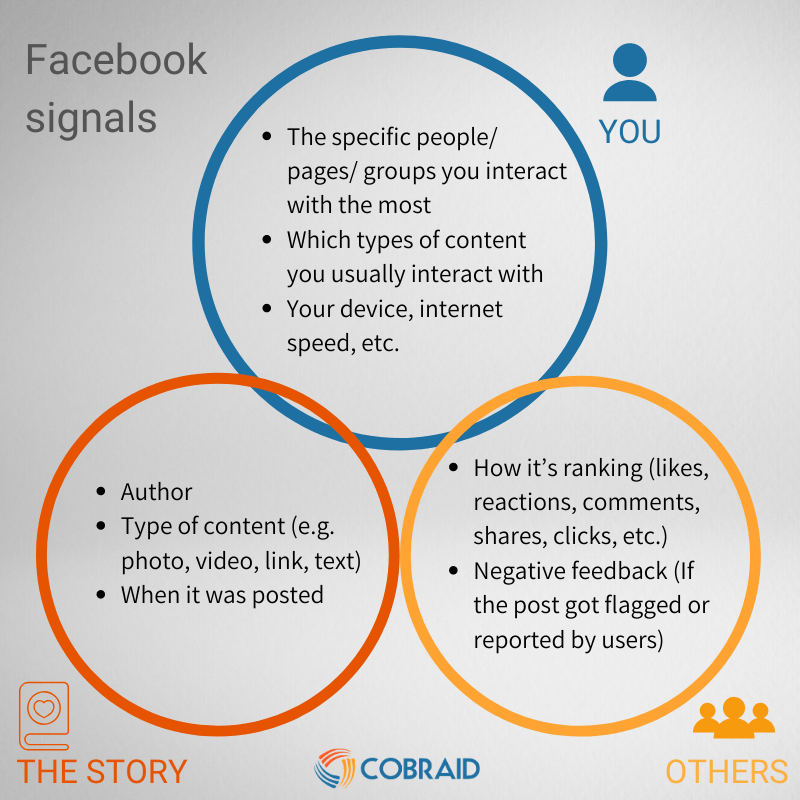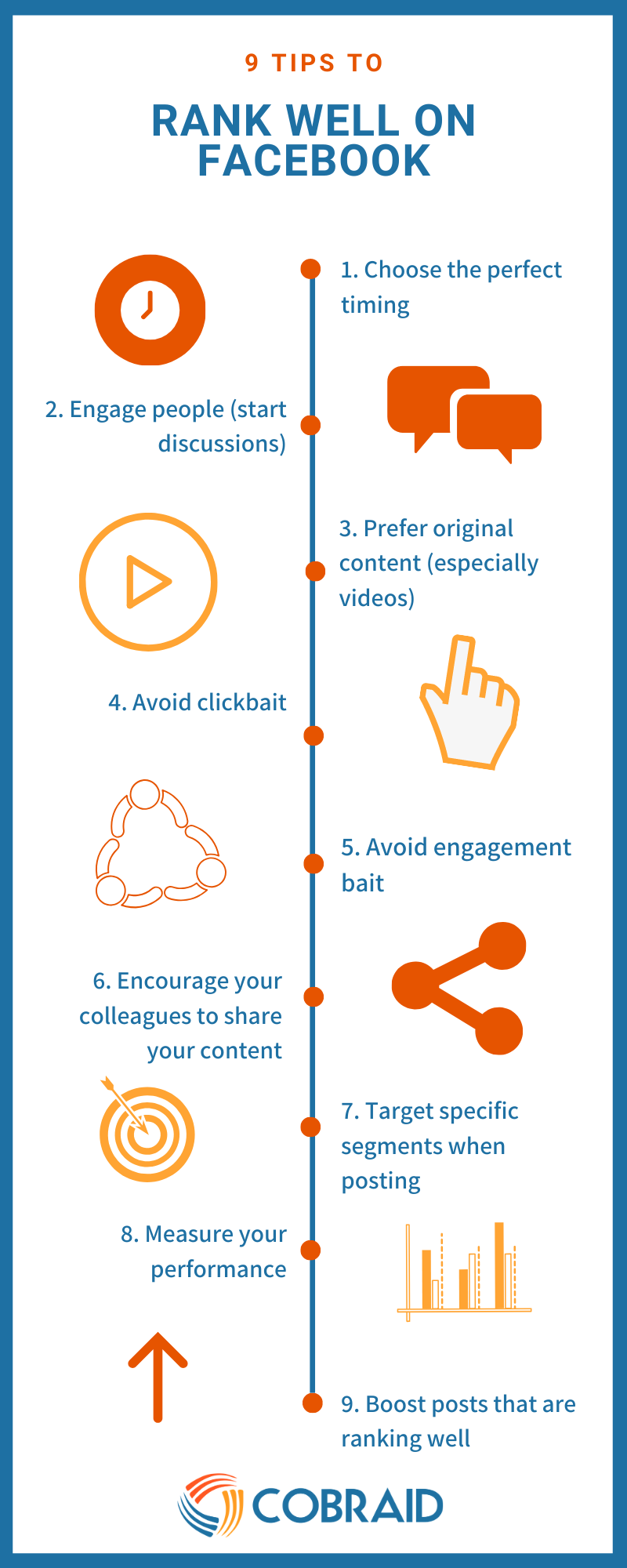If you’re posting on Facebook on behalf of a business, you might be struggling to reach your audience. Even if you’re creating great content, your posts might fall through and end up with almost no impressions. But why is that, you’re asking yourself? And that’s probably also why you ended up finding this post. The answer might be that you need a better understanding of the Facebook algorithm.
Recent changes
Like with most things in this world, the Facebook algorithm is constantly changing. They constantly change the way that content is being selected for the news feed. Many of these changes are to improve Facebook’s business model, but over the last couple of years, they started having another agenda.In January 2018, the head of news feed at Facebook explained some important changes to the Facebook algorithm. They wanted to give their users more meaningful interactions with friends and family. To do this they started showing them the content that they will be most likely to interact with. As explained by Facebook, this would, of course, cut back on other content, since space in the news feed is limited.Another important change for the users happened in April 2019. With the “Why Am I Seeing This?” feature, it became easy for users to see why specific posts ended up in their news feeds. Also, it became much easier to control what posts would be shown in the future directly from each post.In May 2019, they started basing the Facebook algorithm directly on user input. By presenting the users with surveys about their news feeds, they started to collect feedback. This feature was yet another step towards showing relevant content to the users.There are other examples of changes, but all in all the trend goes towards making the news feed as relevant as possible. What does this mean for you? Well, let’s take a look at how the Facebook algorithm works.
How it works
I’ll explain the basics of the Facebook algorithm for organic content here. If you’re interested in learning more, watch this short video explainer from Facebook. You can also listen to this podcast from an interview with Facebook’s head of news feed analytics. Finally, check out what Facebook tells the users about how the news feed works.Inventory
First of all, the stories that you will see depend on the inventory of available stories. The inventory consists of all the stories you haven’t seen yet from your friends, pages, and groups. Since you don’t have time to scroll through all these stories, Facebook will prioritize them for you.Signals
When prioritizing the stories in the inventory, Facebook is looking at what they call signals. This includes a lot of data, but here are some of the basics:
Predictions
Based on these signals, the Facebook algorithm makes predictions about each story. This Includes how likely you will be to comment, like, and so on. Finally, each story gets a relevancy score representing how interested Facebook thinks you are in it.Relevancy score
Every time you scroll down your news feed, all the available stories are ordered by these scores. This is Facebook’s attempt to show you relevant content, and the more you use it, the more it learns about you.What about ads?
Between the organical posts, Facebook will place some slots for ads. These ad slots then get filled with relevant ads from the highest bidders, but how that works is another story.9 tips to rank well




